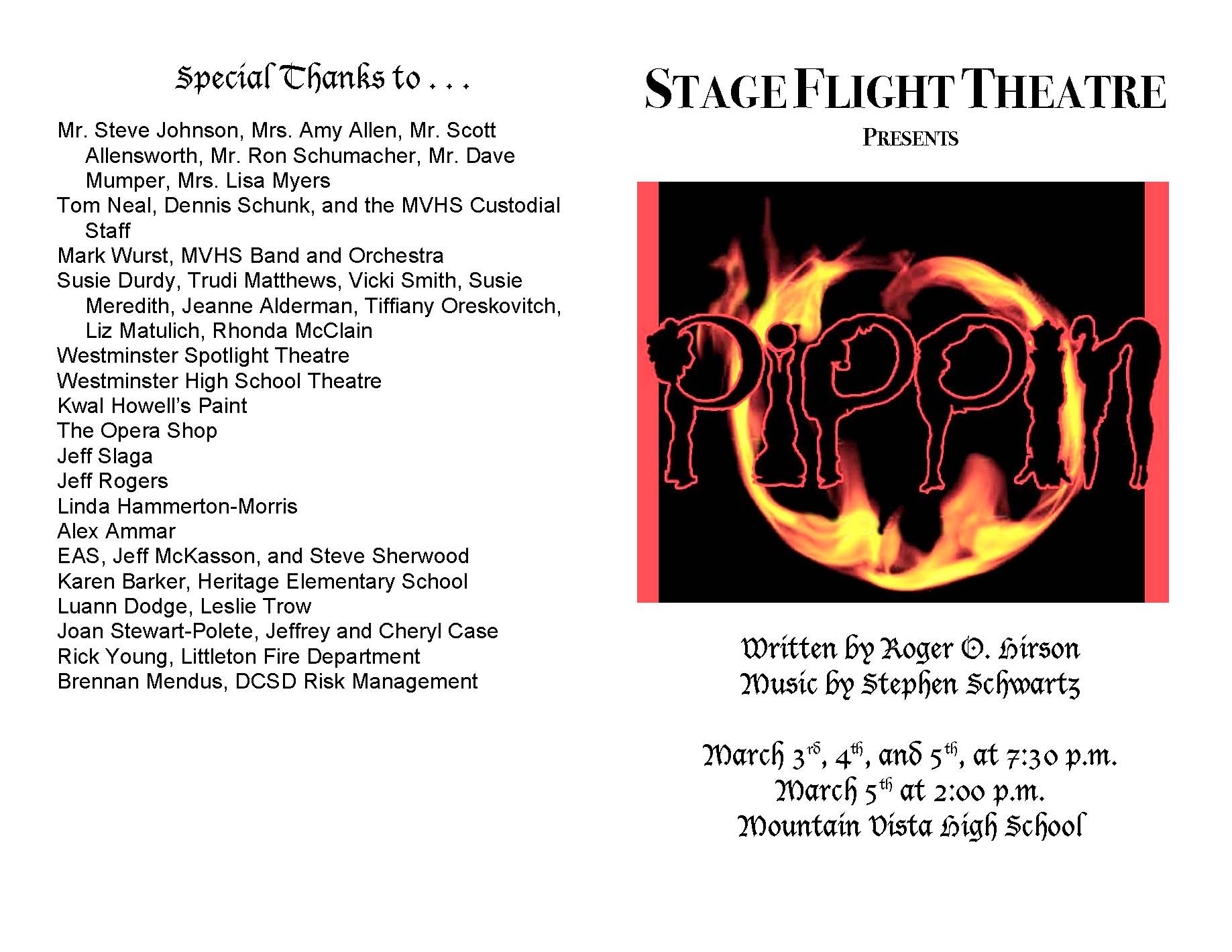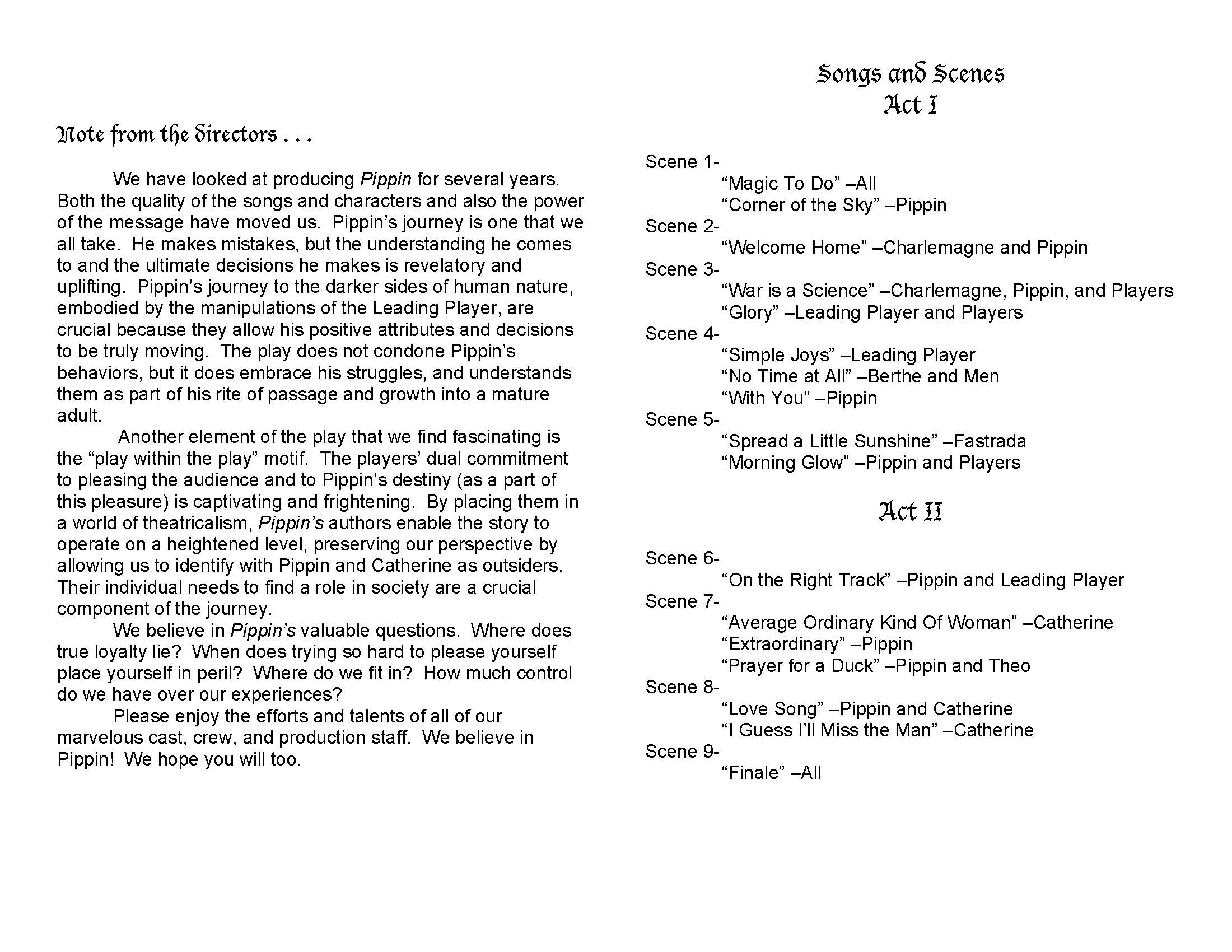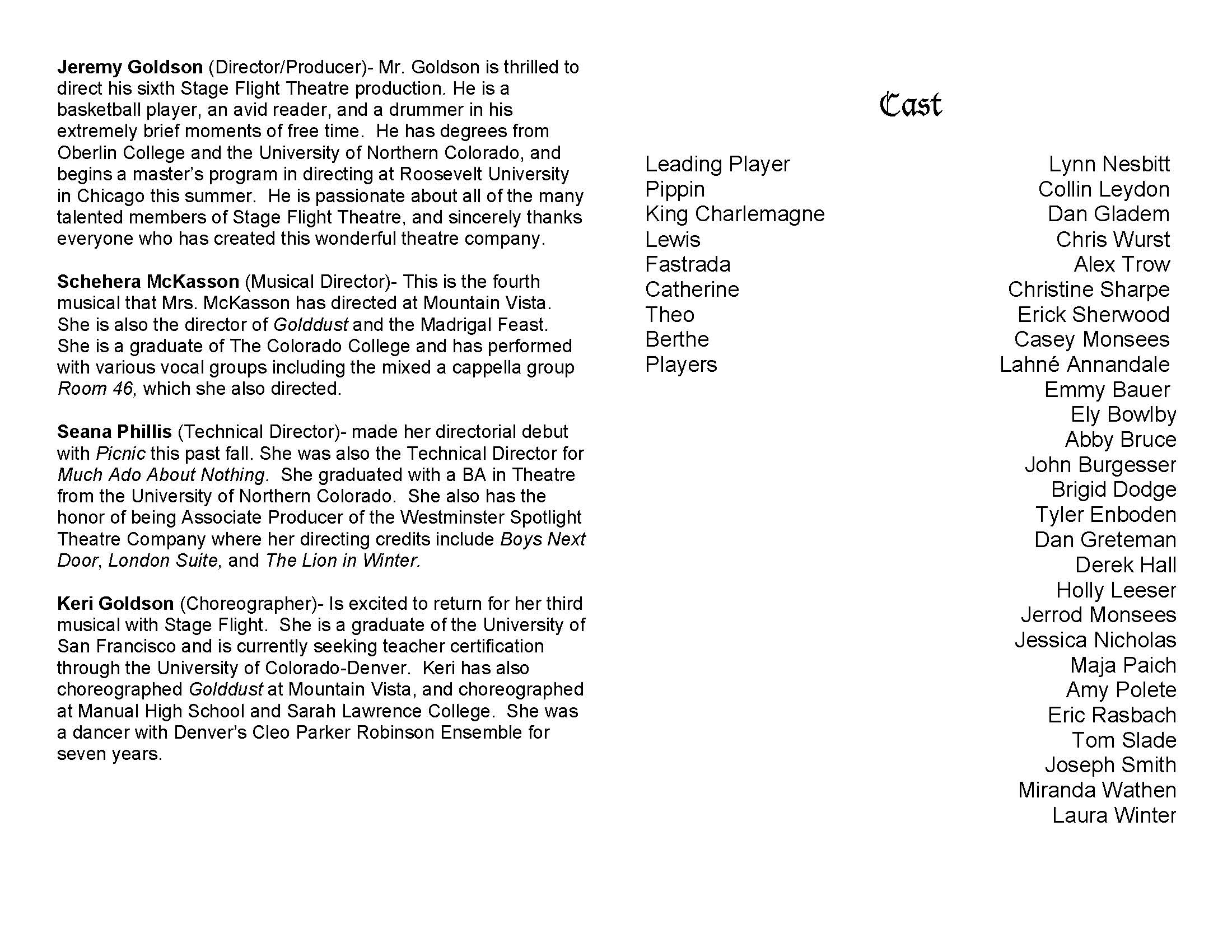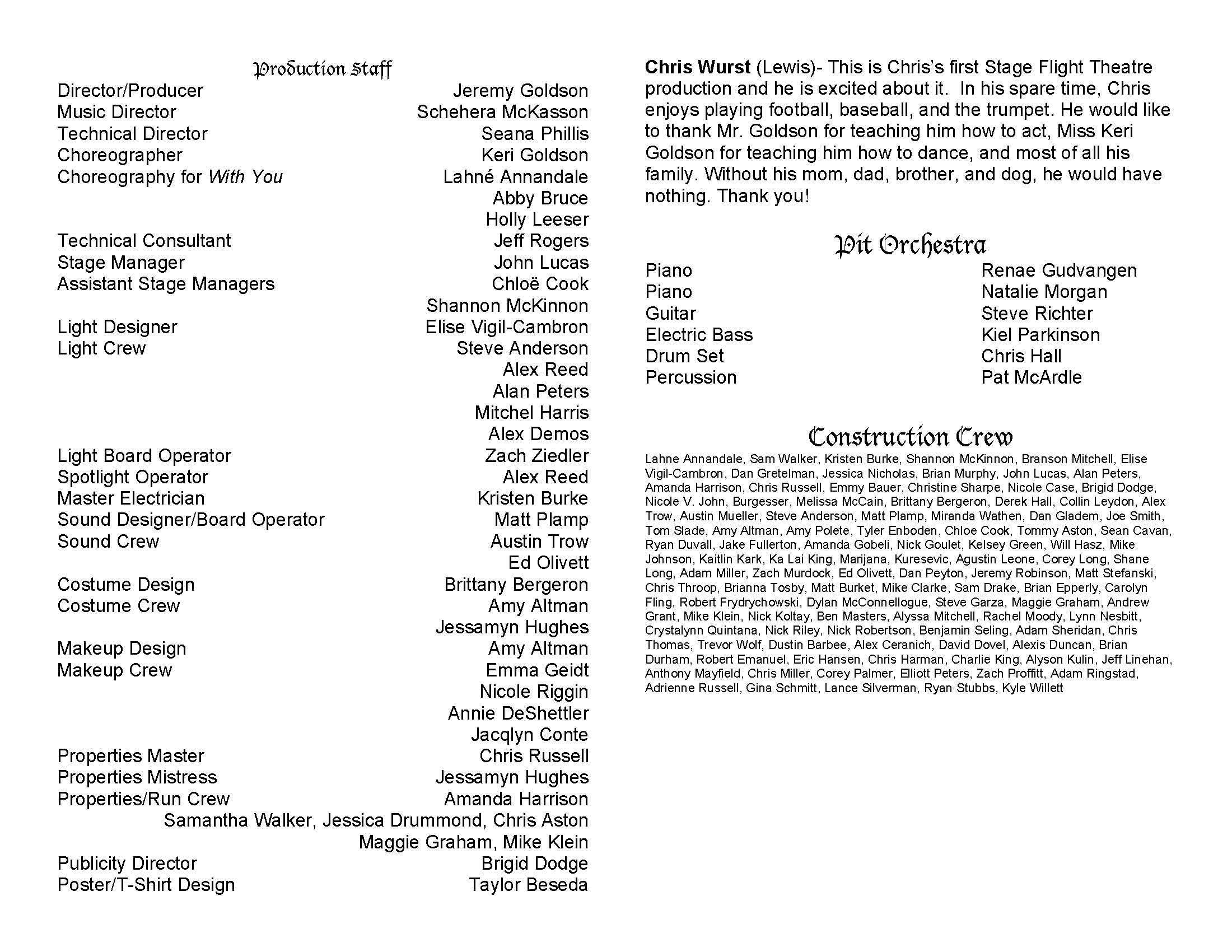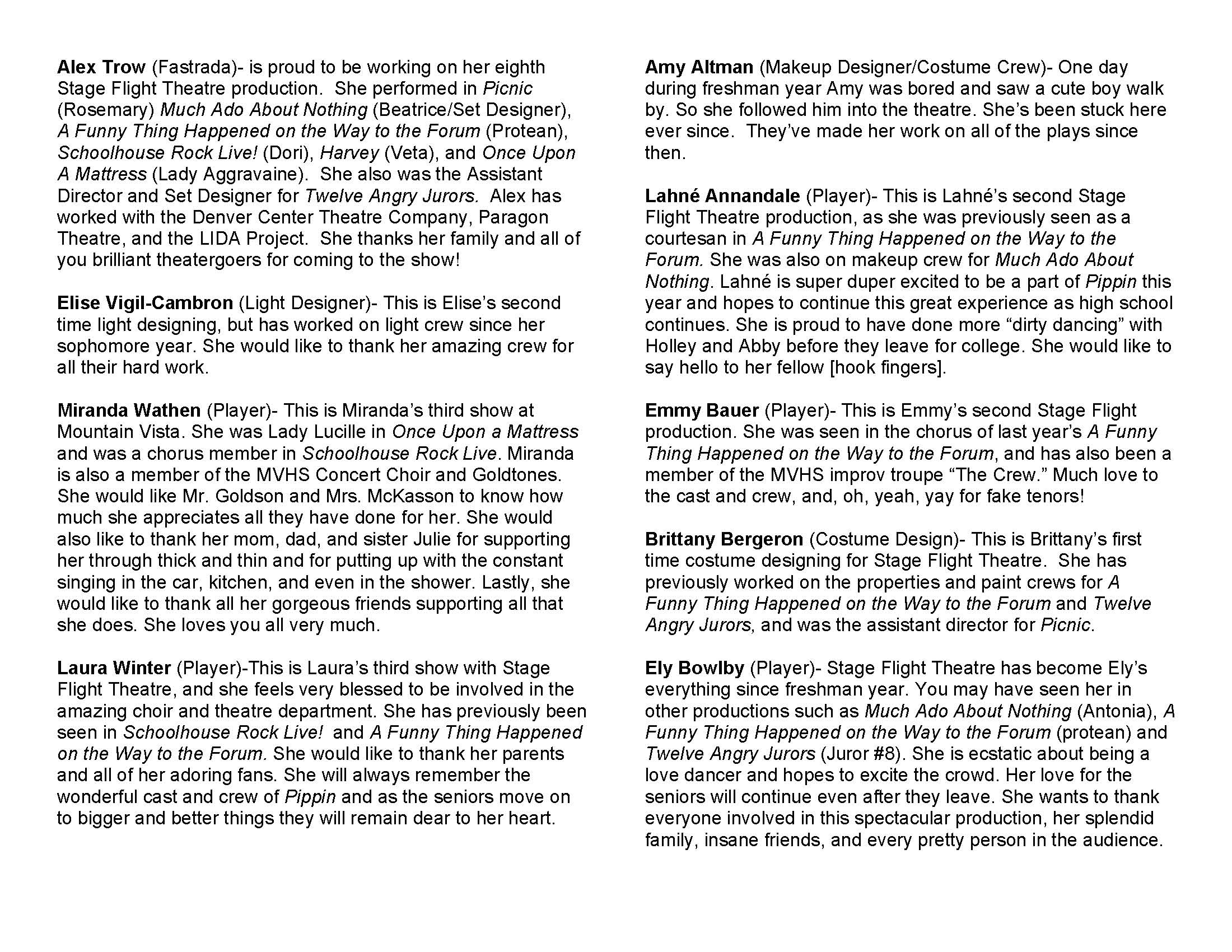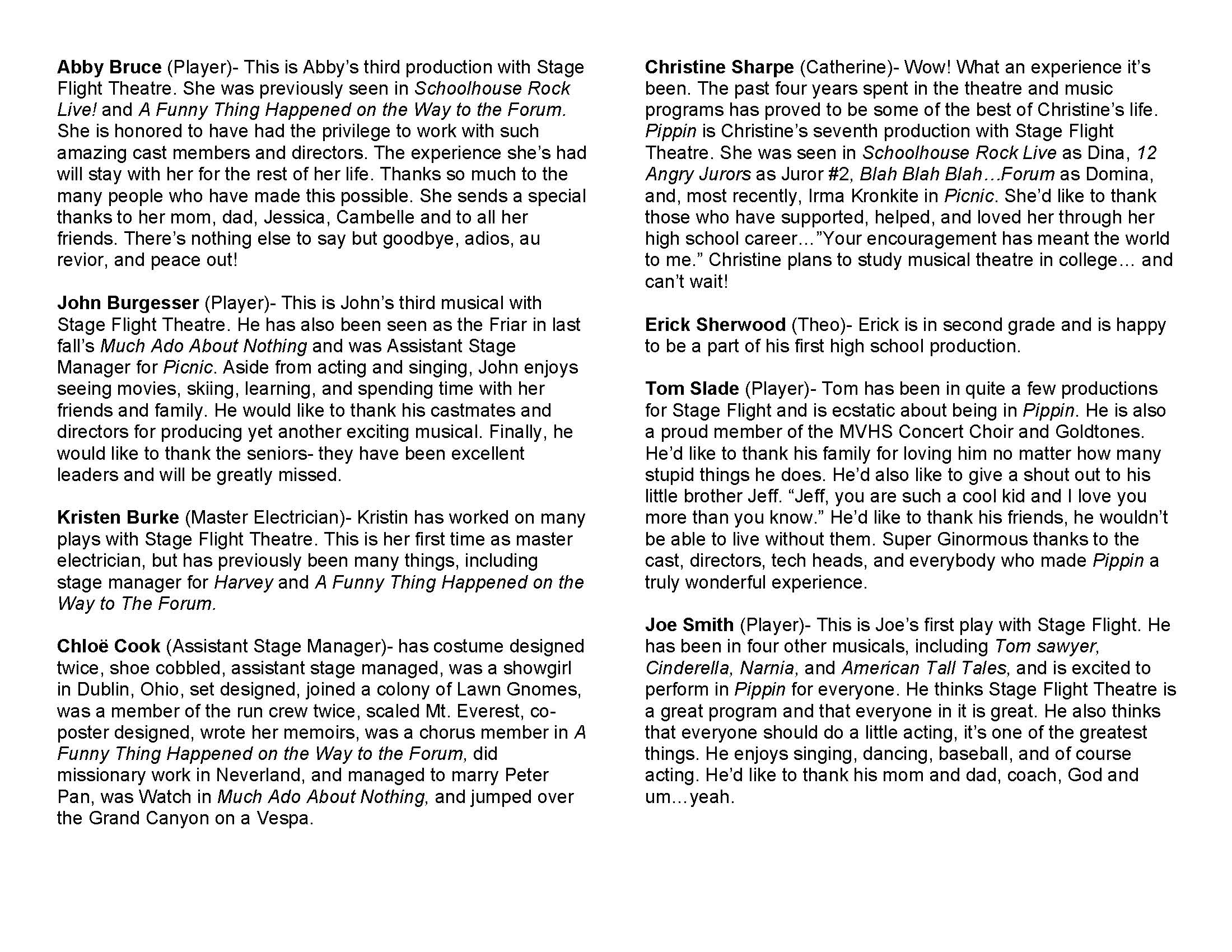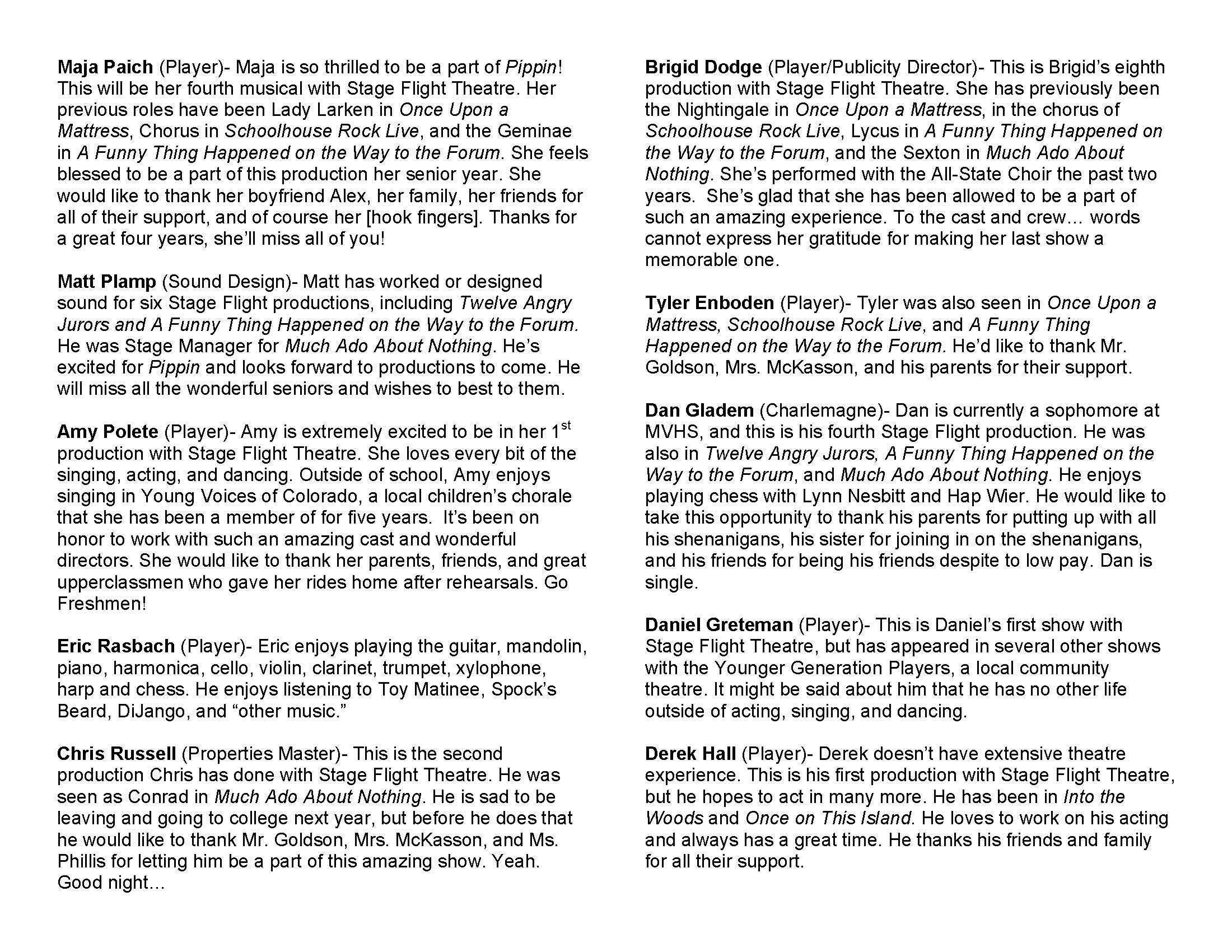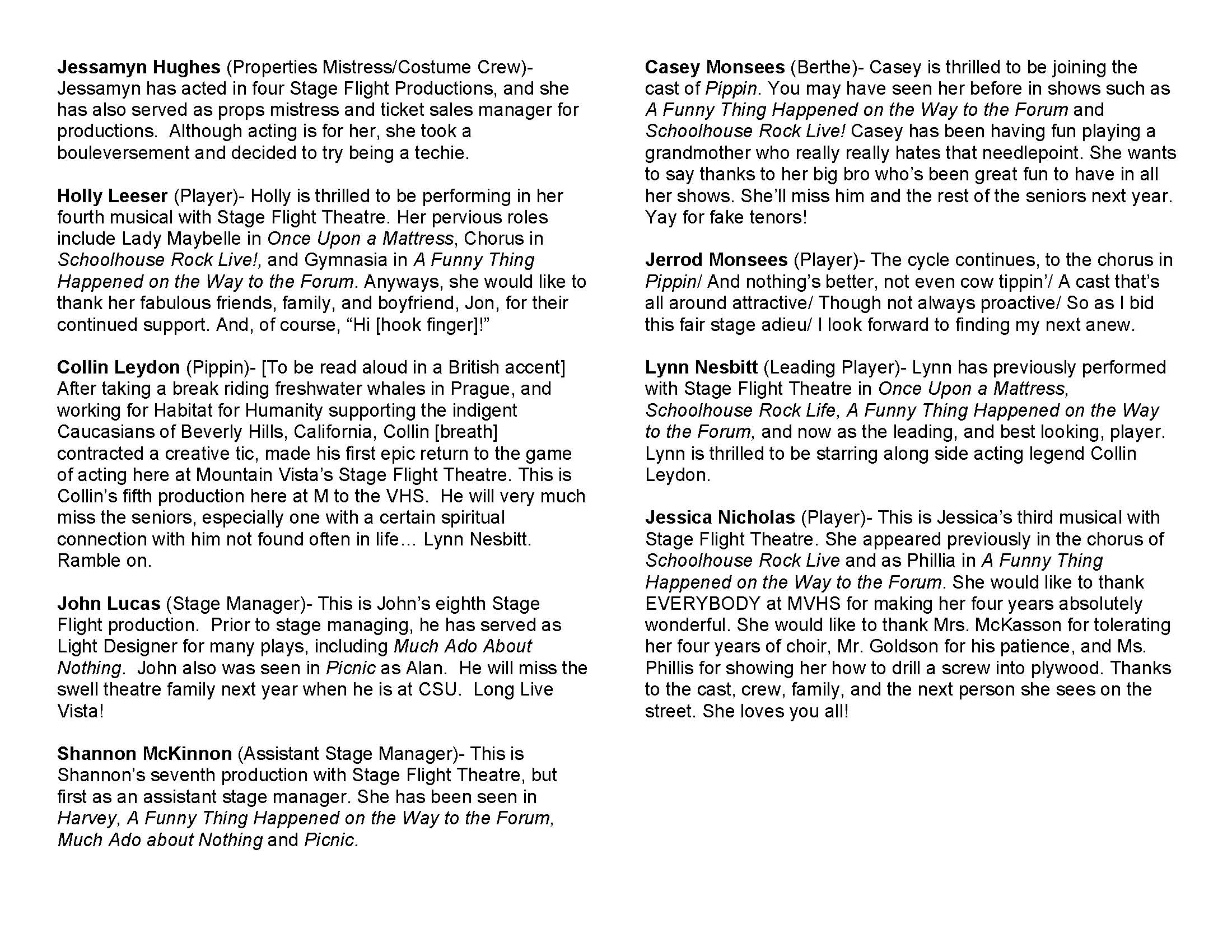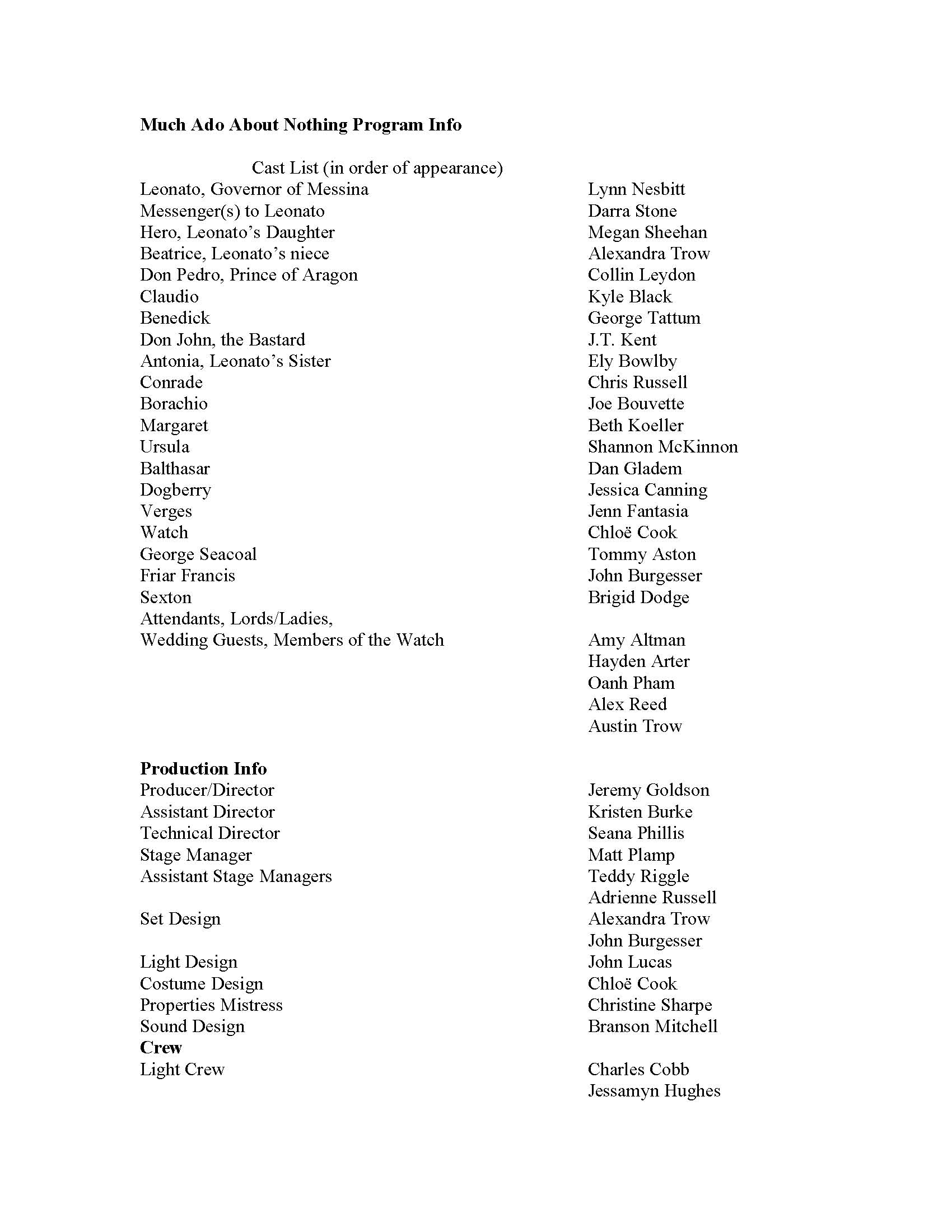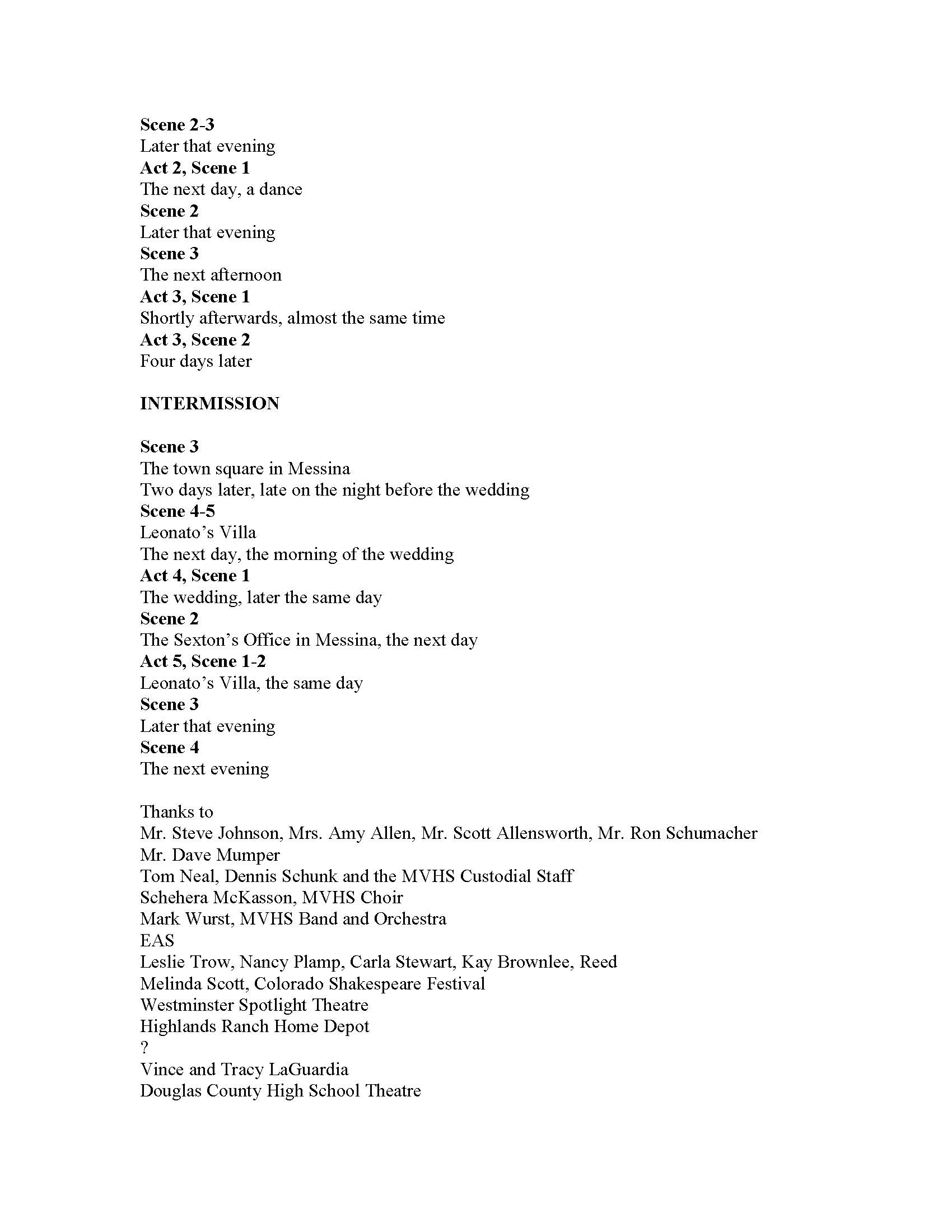Much Ado About Nothing Focus/reading questions
Much Ado About Nothing
Focus/reading questions
Note: All acts, scenes, and lines and are noted 1.1.32-45 with the first number being the act, the second number the scene, and the final numbers the lines which are also noted in the script.
- Overall, the play is written with tons of linguistic playfulness. READ PAGES xxi-xxiv IN THE FOREWARD to get an excellent idea of what sort of tricks and wits Shakespeare uses in this play. Watch for puns, double entendres, misplaced meanings, and other instances where the characters use words intentionally in ways that are unexpected. One example is in 2.3.54-62 where Balthasar and Don Pedro question musical quality and the importance of speaking at all. Another different example, where a character uses colorful and vibrant language to prove a point, is 2.1.21-80, where Beatrice employs numerous similes, metaphors, and flourishes. In general, Benedick and Beatrice are excellent wordsmiths, and they know it, so pay particular attention to their scenes. Pick at least two more examples of linguistic playfulness.
- What is Shakespeare’s opinion of women in general? How does he expect them to behave in public?
- The entire plot turns on misunderstandings and understandings. Every significant event, from Beatrice and Benedick’s “courting,” to Claudio’s dismissal of Hero, to the ineffective watch accidentally catching Borachio and Conrade, is a direct result of someone or more than one person misinterpreting or misunderstanding words or actions.
Think of an experience that you have had where you have misunderstood or misapprehended a something that has been told to you. Describe this experience.
- How powerful is hearsay in this play, and in your life in general?
- The play also explores to a large degree the theme of deception by appearances, with the scenes with masked characters, especially Hero at the end, significant to themselves. Are people easily deceived by appearances?
- Benedick and Beatrice have to learn to “suffer love.” How much do these characters deceive, or misplace, themselves?
- What is Shakespeare’s opinion, in this play, of people’s ability to communicate with each other?
- Harold Bloom, one of the most important Shakespeare scholars in the world, wrote about Much Ado About Nothing that it is “Certainly the most amiably nihilistic play ever written.” Nihilism is defined as “1) the general rejection of established social conventions and beliefs, especially of morality and religion 2) a belief that life is pointless and human values are worthless 3) the belief that there is no objective basis for truth.” Do you agree or disagree? Pick some examples in the play supporting your opinion.
- Beatrice and Benedick have been lovers before and, for reasons unknown, they chose not to continue the relationship. It can be argued that her vitality, however expressed <wink> has frightened him into flight and made him wary of women in general. Can you find evidence in the text or the characters’ behaviors to support this theory?
- How do Beatrice and Benedick think that they are different from other men and women?
- What is the thematic function (purpose) of the Dogberry/Verges/Watch subplot?
- Look at Benedick’s monologue on page 77, lines 223-248. What generalizations is he making about the human race and what decisions is he coming to in this speech? Also, judge the relative truth of this statement: this monologue is the central moment/speech of the play.
- How would you stage Claudio’s dismissal of Hero in 4.1? How would you build the scene to a climax knowing what Claudio will do?
- What is Shakespeare’s opinion of the judgment of authority figures, specifically Leonato, Dogberry, and Don Pedro in this play?
- It is often said in acting that in every scene there is a winner and a loser, that every dialogue is a contest where the points can be scored by the success or failure of the tactic, the quality of the next choice, and the final outcome of the scene. In this play, this idea is particularly important, since the main characters think (and behave) as if conversation is an art form and a game. With this in mind, pick the winner and support your decision in the following exchanges:
1.1.111-143
1.1.220-283
2.1.25-81
2.3.249-258
5.4.74-102
Much Ado About Nothing Program Info
Much Ado About Nothing Script Analysis
Much Ado About Nothing
Script Analysis
Concepts/Messages:
Don’t assume that what you think you see and hear and what you want to see and hear is actually what you have seen and heard.
Life is a game, and conversation is it’s most powerful and most deceptive piece.
“Ado” can come from anywhere, including your own mind. The trick to life is knowing when to ride the wave of “Ado”-ness, and when to pass it up.
Love can bring even the most strident of enemies together.
“They never meet, but there is a skirmish of wit between them.” (I.i.61-62)
“When I said I would die a bachelor, I did not think I should live till I were married.” (II.iii.244-245)
“It were as possible for me to say I loved nothing so well as you, but believe me not, and yet I lie not, I confess nothing, nor I deny nothing.” (IV.i.283-287)
Character Analysis
Leonato:
- Desire: Leonato wants to be the best host ever,
- Will: He is determined to do this, and will accede to his guests wishes as much as he can. He is extremely devoted to his daughter and niece.
- Moral Stance: Strong, but also fairly narrow-minded.
- Decorum: Leonato has a temper, he can also be rash. He is proud, and has a little giddiness in him. He is also a passionate person, who does not like emotionality, but in his increasing age, finds himself more and more expressive.
- Summary Adjectives: proud, rash, playful, accomodating
- Defining sentence/moment:
“But mine, and mine I loved, and mine I praised,
And mine that I was proud on, mine so much
That I myself was to myself not mine.” (IV.i.144-146)
Messenger
- Desire: The Messenger wants to be recognized as a human being.
- Will: In the middle, she has designs on independence, but goes after her goals through the requirements of her job.
- Moral Stance: She is fairly self-absorbed, but empathisizes with others happinesses and sadnesses.
- Decorum: The Messenger is very serious about her job. She can be gullible, and has a big heart.
- Summary Adjectives: sincere, striving, nosy, helpful
- Defining sentence/moment: “He hath borne himself beyond the promise of his age, doing in the figure of a lamb the feats of a lion.” (I.i.12-14)
Beatrice
- Desire: Beatrice wants to be liberated; from romantic notions, hurt, society’s confining role of women, obligation.
- Will: Immense. Beatrice is so smart that she has created a niche for herself where the struggles of her confinement almost don’t touch her. She loves being in control, and when in control she plays the role of carefree cad with ease.
- Moral Stance: Very high, she has strong notions of right and wrong, but the game of conversation has different rules!
- Decorum: Beatrice is proud, but understands the way she is supposed to behave, with defference and meekness. She is, for the most part, carefree and almost liberated. She does need to be in control, or at least to know the rules of the game. Speaking, using words as the primary method of expressing herself, are paramount to Beatrice. She is also full of life and vitality. She can hardly contain her intensity and passion.
- Summary Adjectives: independent, witty, happy, bitter, sparkling, transcendent, enigmatic
- Defining sentence/moment: “Too curst is more than curst.” (II.i.21)
“I was born to speak all mirth and no matter.” (II.i.323)
“She is never sad but when she sleeps, and not ever sad then, for have heard my daughter say that she hath often dreamt of unhappiness and waked herself with laughing.” (II.i.337-339)
“If they were but a week married, they would talk themselves mad.” (II.i.344-345)
“O God, that I were a man! I would eat his heart in the marketplace.” (IV.i.320-321
Hero
- Desire: Hero aspires for some sort of romantic ideal, she wants to be loved and to love.
- Will: Middling. She teases Beatrice with vigor, and seems to be quite enamored with Claudio. But she doesn’t fight back personally when she is attacked.
- Moral Stance: Hero operates in a clear cut system of right and wrong, but she is also defined by what others think of her, and how the place her.
- Decorum: She is beautiful and virginal, aware of her beauty and the powers of femininity. Hero is also docile and sweet, unable to “touch a flea.” She appears to be more than human at times, and with a name like Hero, has a lot to live up to. She speaks very well, and eloquently.
- Summary adjectives: romantic, idealistic, innocent, deific
- Defining sentence/moment: “Is it not Hero? Who can blot that name/With any just reproach?” (IV.i.84-85)
“She died, my lord, but whiles her slander lived.” (V.iv.68)
Don Pedro
- Desire: Don Pedro wants things to be right, to end well, for his favorite people in the play – Claudio and Benedick.
- Will: Don Pedro is very willful, and is used to getting what he wants. He has a paternalistic side, but he can talk, fight or maneuver to get almost anything.
- Moral Stance: Very clear and black and white. Don Pedro is not shallow or conceited, thought. Rather, he is so confident in himself, his reputation, and his ability that he can apologize or quickly correct his mistakes.
- Decorum: Don Pedro is the epitome of regality. He has a soldier’s bearing, graceful and powerful. He dresses well, speaks well, conveys power, control, and ease in all situations.
- Summary adjectives: masculine, regal, engaged, paternal
Defining sentence/moment: ”If we can do this, Cupid is no longer an archer; his glory shall be ours, for we are the only love gods.” (II.ii.376-377)
Benedick:
- Desire: Benedick wants to win back Beatrice.
- Will: He is a proud, almost arrogant man, who is very gifted at many things, and will work hard to achieve . . . if he really has to.
- Moral Stance: Benedick’s sense of right and wrong (and his attendant indignation) is tied to his ability to tease, entertain, and perform.
- Decorum: Benedick thinks he is both Adonis and Atlas and Sophocles personified. In other words, he da bomb! He speaks extremely well, and knows it, and loves the game of language.
- Summary Adjectives: witty, pompous, on stage, fun
- Defining sentence/moment: “But it is certain I am loved of all ladies, only you excepted.” (I.i.22-23)
“Because I will not do them (women) the wrong to mistrust any, I will do myself the right to trust none.” (I.i.239-240)
“Shall quips and sentences and these paper bullets of the brain awe a man from his career of his humor. No! The world must be peopled.” (II.iii.242-245)
Claudio
- Desire: To marry Hero, and maintain his honor.
- Will: Claudio’s will is wrapped up in his brawn and his temper. He can be extremely willful, and also a bit of a baby.
- Moral Stance: Claudio’s morals are iron-clad. He believes in the code of right and wrong.
- Decorum: Claudio knows that he is a hunk, and a war hero. He carries himself with the carefree vigor and immortality of youth and confidence.
- Summary Adjectives: impetuous, jealous, macho, proud
- Defining moment/sentence: “Friendship is constant in all other things/Save in the office and affairs of love.” (II.i.173-174)
“But fair thee well, most foul, most fair. Farewell,” (IV,i.108)
Don John
- Desire: Revenge on Don John and Claudio for shaming and defeating him.
- Will: His will is fired by his anger and sense of being undermined and undervalued. He is also a coward, who hides behind deception.
- Moral Stance: He knows what is perceived to be right and wrong, and he doesn’t care. He happily becomes the bad guy. He has no remorse.
- Decorum: Don John enjoys being the bad guy, he thinks of it as a role. He is also proud, and sensitive to others perceptions of him.
- Summary Adjectives: angry, vengeful, brooding, cowardly
- Defining sentence/adjective: “It must not be denied but I am a plain-dealing villain.” (I.iii.29-30)
Antonia
- Desire: Antonia wants to prove herself as a worthy member of Leonato’s family, to all in the role she has (i.e. Aunt).
- Will: She is pretty feisty.
- Moral Stance: Antonia can get carried away with her sense of right and wrong and what happens when wrong is committed.
- Decorum: She’s a little out of style, thinks she’s pretty hot, but has an element of clown.
- Summary Adjectives: fiesty, loving, eccentric, old-fashioned
- Defining moment/sentences: “Come, follow me, boy. Come, sir boy, come follow me/Sir boy, I’ll whip you from your foining fence.” (V.i.94=95)
Conrade
- Desire: Conrade wants to prove he is devoted to Don John.
- Will: Conrade is fairly easy-going. He is intimidated and impressed by Don John, and genuinely wants to like him.
- Moral Stance: Conrade’s morals are overwhelmed by how much of a weasel he is..
- Decorum: Conrade thinks he is pretty special. He has good posture, thinks before he speaks, but doesn’t really leave a lasting impression.
- Summary adjectives: sneaky, cocky, simple, helpful.
- Defining sentence/moment: “Is it possible that any villainy should be so dear? (III.iii.109-110)
Borachio
- Desire: Borachio wants to earn the job of clear second in command in Don John’s crew.
- Will: Borachio’s will is fairly powerful, but his playful and slightly out-of-control nature does him in. Badness just is not in his blood. When he really sets his mind to a task, Borachio can accomplish almost anything. But again, he is susceptible to humankind’s vices.
- Moral Stance: Borachio is a devious, rowdy, and bawdy guy, but he is not evil. He has a sense of remorse.
- Decorum: Borachio is like a frat boy, fun-loving, mischievous, and not particularly cared about his appearance. He’s just a little thick-headed.
- Summary adjectives: devious, mischievous, rowdy, thick—headed.
- Defining sentence/moment: “Not honestly, my lord. But so covertly that no dishonesty shall appear in me.” (II.ii.9-10)
Margaret
- Desire: ?
- Will: Not bad at all. She is pretty confident, and won’t shy away from anyone. She is very practical as well.
- Moral Stance: Strong enough, can be a bit heady.
- Decorum: Margaret knows that men find her attractive, and she shows herself off, and uses her wiles to her advantage. She is not a slut, however. She is clever, and enjoys the word games that Hero and Beatrice can overwhelm her in.
- Summary adjectives: frisky, confident, practical, wily.
- Defining sentence/moment: “’Twill be heavier soon by the weight of a man.” (III.iv.25-26)
Ursula
- Desire: Hero’s happiness? Boys?
- Will: Okay, she isn’t particularly strong.
- Moral Stance: Solid.
- Decorum: Ursula is quiet, can appear shy, but is proud and also quite feminine. She is also playful and speaks well.
- Summary adjectives: retiring, feminine, playful, sensitive
- Defining sentence/moment: “She’s limed, I warrant you. We have caught her, madam.” (III.ii.109-110)
Balthasar
- Desire: He wants to be Benedick.
- Will: Fine.
- Moral Stance: Good, and he has a good understanding of the world.
- Decorum: Balthasar wants to be pretty, but he is young and brash and doesn’t really know a lot. He is deferential to his superiors, but fancies himself a ladies man, and can be rude to lesser people.
- Summary adjectives: determined, brash, flirtatious, artistic
- Defning sentence/moment: “There’s not a note of mine that’s worth the noting.” (II.iii.57)
Dogberry
- Desire: To uphold her position as the best lawman in the world.
- Will: Very strong, but misguided. Dogberry is a malaproper, so she doesn’t really understand what being a “most vigitant” lawman means. She tries very hard.
- Moral Stance: Accidental at best. Morals and values are almost above Dogberry’s comprehension.
- Decorum: Sloppy, under-attended. Dogberry thinks she speaks well, but doesn’t. She probably smells a little, too. Decorum just isn’t very important to her. She is, however, very proud of her status and flaunts it.
- Summary adjectives: sloppy, determined, misguided, clownish
- Defining sentence/moment: “I am a wise fellow, and which is more, and officer and, which is more, a householder and, which is more, as pretty a piece of flesh as any in Messina, and one that knows the law.” (IV.ii.82-85)
Verges
- Desire: to earn the mantle that Dogberry has.
- Will: Mediocre, she is more comfortable as the second fiddle. Dogberry is an easy person to emulate. She is more coherent than her boss.
- Moral Stance: Depends on the circumstances and whatever Dogberry and others say. But it is in there somewhere.
- Decorum: Poor. She also doesn’t pay much attention to her appearance. She is more aware than Dogberry though, and will flirt on occasion. She still feels like an apprentice.
- Summary adjectives: doofy, helpful, supportive, misguided
- Defining moment/sentence: “If he will not stand when he is bidden, he is none of the princes subjects.” (III,iii,31-32)
Watch/Seacoal
- Desire: Uphold the directions to the watch.
- Will: It’s their job, and their will overall is average. Here it is diminished by Dogberry’s directions.
- Moral Stance: Good, they want to do well regardless of the circumstances.
- Decorum: Average, they listen and speak fine, but don’t take great care in their appearance. They are also lower/middle-class.
- Summary adjectives: relaxed, obedient, empowered
- Defining moment/sentence: the accidental capture of Borachio and Conrade.
Friar Francis
Much Ado About Nothing Crew List
Much Ado About Nothing
Crew List
House Manager- Maggie Munson
Ushers – TBD
Lights
Head- John Lucas
Jessa Hughes
Charley Cobb
Alan Peters
Elise Vigil-Cambron
Costume
Head-Chloe Cook
Maggie Graham
Oahn Pham
Savannah Johanson
Erica Van Voast
Props
Head- Christine Sharpe
David Ashby
Lindsay Moffitt
Maggie Munson
Sound
Head- Branson Mitchell
Mike Klein
Chris Aston
Run Crew
Head-Austin Mueller
Chris Jacobsen
Mitchell Harris
Steve Anderson
Chris Aston
Publicity
Head- TBA
Britney Willoughby
Brittany Bergeron
Make-Up
Head- Amy Altman
Lahné Annandale
Lacey Young
Nicole Case
- « Previous Page
- 1
- …
- 5
- 6
- 7
- 8
- 9
- Next Page »
